![]()
![]()
![]()
Use LEFT and RIGHT arrow keys to navigate between flashcards;
Use UP and DOWN arrow keys to flip the card;
H to show hint;
A reads text to speech;
24 Cards in this Set
- Front
- Back
- 3rd side (hint)
|
Actual sound of the language |
Phonology |
|
|
|
Ability to make distinction in the subtle differences between speech sounds represent a change in meaning or not; the pronunciation of a word varies between people. |
Categorical perception |
|
|
|
Structure of the words or these are building blocks (morphemes) of words |
Morphology |
|
|
|
Refers to how words are put together to form sentences |
Syntax |
|
|
|
It refers to the dependence of language on context and preexisting knowledge. The tone changes to different situations. |
Pramatics |
|
|
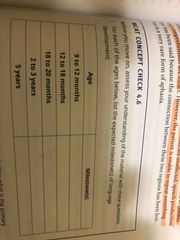
Front (Term) |
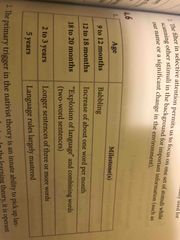
Back (Definition) |
|
|
|
Changing word orders but result in the same meaning of the sentences newly formed. |
Transformational grammar |
|
|
|
The nativist theory believes that at an early age the child acquires an innate ability. What is it called? |
Language Acquisition Device |
Theoretical pathway in the brain that allows infants to process and absorb language rules. |
|
|
This theory believes in the critical period/sensitive period wherein language learning mostly occurs. |
Nativist Theory |
|
|
|
It is operant conditioning with reinforcement by parents and caregivers. |
Learning Theory |
|
|
|
Desire to learn language to communicate effectively and act socially. |
Social Interactionist theory |
|
|
|
Language determines our perception or how we see the world. |
Whorfian Hypothesis or Linguistic relativity hypothesis |
|
|
|
During this stage, according to Piaget, the world is understood mainly through the use of language and mental imagery. |
Preoperational Stage |
|
|
|
What part of the brain is affected when the individual suffers conduction aphasia? |
Arcuate Fasciculus |
Connection Broca’s Area and Wernicke’s Area |
|
|
This is characterized by problems recalling words, names, and numbers.wher |
Anomia Aphasia |
|
|
|
Where does the Broca’s Area and Wernicke’s Area located? |
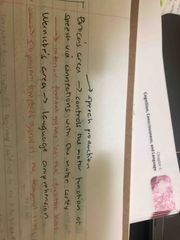
Back (Definition) |
|
|
|
Speaking non-sensical words |
Wernicke’s Aphasia |
|
|
|
Always the word is at the tip of their tongue |
Broca’s Aphasia |
Expressive |
|
|
The patient is unable to repeat something that has been said because the connection between these two regions has been lost. |
Conduction Aphasia |
|
|
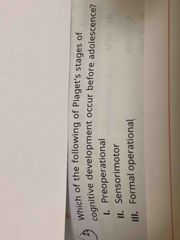
Front (Term) |
I and II |
|
|
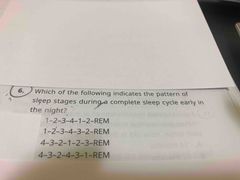
Front (Term) |
Second Choice |
|
|
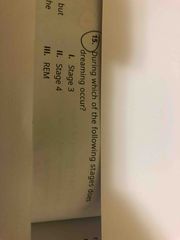
Front (Term) |
All |
|
|
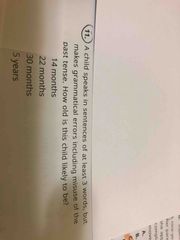
Front (Term) |
Third option |
|
|
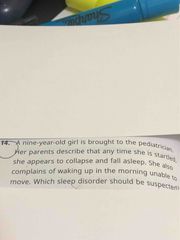
Front (Term) |
Narcolepsy |
|

